As industries across the world face pressure to come up with innovative ways to decarbonise their goods and services to reach climate targets, the toy industry has been in the spotlight in recent years for its continued reliance on plastic.
The environmental impact of plastic toys is created throughout the manufacturing process, across packaging, transportation and marketing.
Most toys available in the market are made from non-biodegradable, petroleum-based plastic, while alternatives can be made from natural materials like wood, cardboard, bioplastics or recycled plastics.
Plastic accounts for around 3% of global emissions, mostly linked to its production from fossil fuels.
According to the latest research in this area, 80% of all toys globally end up in landfills, incinerators or the ocean and are not recycled, while an estimated 5.5 million plastic toys are discarded in Ireland each year.
The country's first digital toy exchange library aims to tackle the problem of toy waste by giving parents a platform to find, exchange or donate second hand toys free of charge to give them a longer lifespan.
Launched in June by Giorgia Anile, a PhD student at UCC, the platform has already had close to 1,000 users.
By logging onto thetoylibrary.ie, users can search for a toy anywhere in Ireland, or create an account to list their second hand toys.
Ms Anile said that the digital toy library aims to create a sustainable culture and habit of sharing.
As part of her PhD research, Ms Anile looked at how online platforms can play a role in the circular economy, and the concept of degrowth in the economy.
"My vision was one of having accessible play, where children enjoy a variety of toys while caring for their planet. I submitted my idea to ReThink Ireland and it was selected, and have had support from Cork County Council as well as the LEO.
"Having a digital library rather than a physical one, which exist around Ireland already, it encourages peer to peer swapping, and I remove myself from the equation to connect people with other like-minded people.
"We ideally want people to only look for toys in their own area to keep it carbon neutral."
She added that users know they are part of a movement, and want to tackle the pile of plastic they have accumulated from the toys currently on offer in the market, and increase their shelf life.
"We need clusters of users to make it work so we are trying to activate communities through pop-up events to raise awareness, but so far parents and children have been delighted.
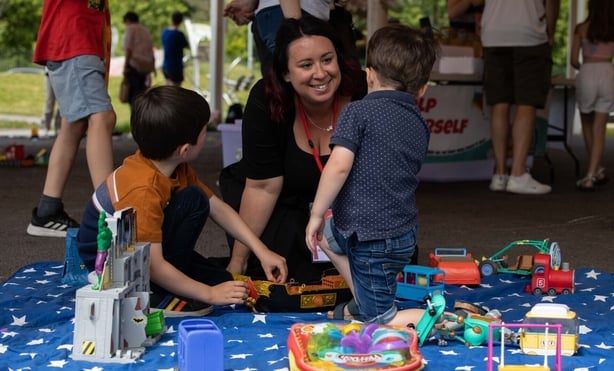
"My dream is that in three years' time, every time a child asks for a toy, parents will check the toy library as a first option, and think about reusing before going out to buy a new toy."
Ms Anile said that she wanted the platform to "disrupt" the toy industry, and that this was happening.
"There’s nothing wrong with getting pre-loved items. Children lose interest in their toys quickly and so a new toy is not good value for money, and is bad for the planet.
"At this time of year, it’s about reframing the way we think about presents. I don’t think plastic toys are the main ingredient for a happy Christmas."
She said that business models need to embed circularity into the way they work in terms of shelf life, making sure a product can exist even after a child loses interest.
"We all need to be responsible for our materials and be conscious of the waste that we produce."
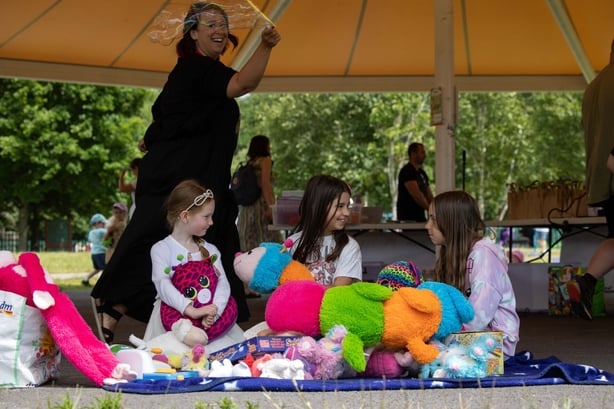
Industry 'asleep to sustainability'
A leading voice in this space is Sharon Keilthy, a consultant in sustainability who has been working closely advising and advocating for greener practices within the toy industry globally.
Her focus is on retailers and reducing the carbon footprint of toys, having come from a retail background herself.
In 2018 she founded Jiminy Eco-Toys after she found it difficult as a consumer to be able to make the sustainable choice while shopping for toys in Ireland.
"I was stunned to find that the industry was just asleep to sustainability, and had no self awareness when it came to plastic at that time," she said.
"People wanted sustainable Christmas presents, but the industry was not providing this."
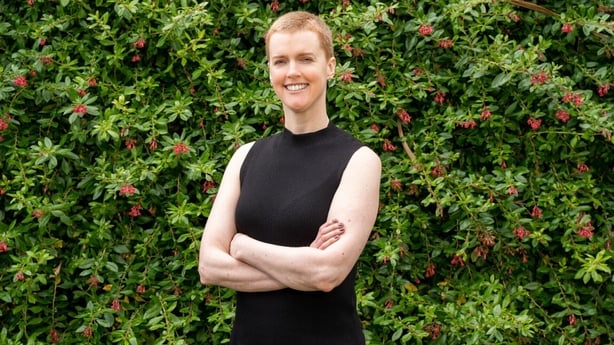
She said that post-pandemic, a lot more brands have made a step change in this area, and either stock sustainable toys or are experimenting in how they can produce them.
"Brands need to make a mental shift that eco-friendly isn’t niche. I found that some eco-friendly lines of toys were producing items that were brown and grey. They were exciting and parents and children won’t go for those colours, and it just doesn’t work."
She added that most consumers tend to be passive in this area, and therefore retailers need to be the agents of change to show consumers how to buy better and more sustainably.
She said that it can be the bigger actors, for example brands that licence their animated or fictional characters to a toymaker, that can make specification demands to reduce the amount of plastic in toys.
"Disney for example, don’t want to be tarnished with bad reputations and can bring the incentive to toy manufacturers to reduce plastic or use recycled plastics.
"Mattel have taken some strides but it’s still experimental, and Hasbro and Lego are making changes, but it gets more complicated the more products you have, and as new product designs are being created constantly.
"A smaller player with less design requirements can change to 100 percent recycled plastic quicker."
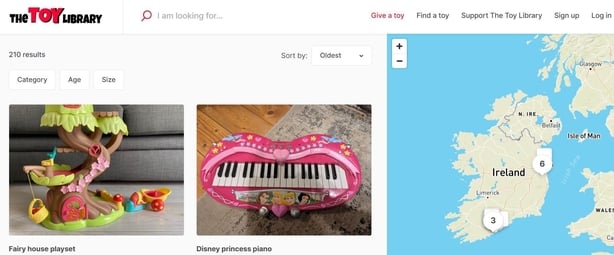
Number of factors needed for toy sustainability
She said that toy libraries or toy swaps promote reuse, but they need to be hyper-local and normalised to become mainstream.
"The carbon footprint of the toy industry is equivalent to permanently deforesting one billion trees which would cover an area the size of Portugal," she said.
"Sustainability in toys needs to be a combination of sustainably-made new toys, the reuse of existing toys and also toy repair.
"An industry that exists to make children happy, should be protecting their planet and their future, but sadly at the moment, it is doing the opposite."
On the future of the industry, she said a whole of industry approach was needed to solve the plastic problem, suggesting the establishment of an independent global science based thinktank to be set up, like in other industries.
"Things are moving in the right direction but more regulation is needed. As long as it is more expensive to do the right thing, and cheaper and easier to do the wrong thing, it’s clear what people will do."
Co-owner of Pinocchio's Toys and Gifts in Cork city, Wyon Stansfeld, said that in his experience, the demand from customers in Ireland for plastic free toys is improving.
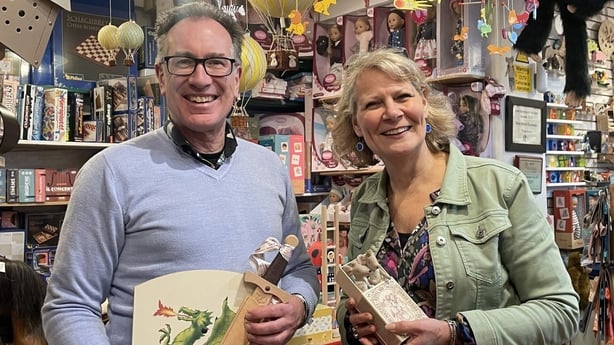
Pinocchio's specialises in wooden toys from managed timber sources, and the only plastic toys it stocks tend to come from recycled or bioplastic where possible.
"Wood tends to be more expensive, but it’s not always the case for bioplastics or recycled plastics. It can be difficult to get things like this in Europe, but it is possible.
"For retailers to be sustainable, products need to be environmentally friendly and ethically produced. You need to ask yourself where the product comes from and who makes it."
He added that some popular online sites that stock toys were not good for the industry or the climate.
"Getting something cheap from China, I accept that it depends greatly on your financial circumstances, but a lot of it is disposable junk for sale. Ask yourself whether you can pass it on for a generation or two.
"Even if you prefer shopping online, try shop in Ireland and keep the footprint as low as possible. Don’t buy something that’s going to be broken after ten minutes and go in the bin.
"Even if the toy is plastic, buy something that’s good quality and will last."
He described the toy industry as obsessed with plastic, but said that it can be easier for small businesses to adapt quicker as they are not buying in bulk compared to larger retailers.
He said that ultimately if margin is your only dictator, the cheaper products are not always going to be greener.
"We get wooden swords from a German company that are plastic free, and we sell them for €6.99, while the alternative from China would be a foam sword for €4.99 that might bend and break.
"It’s about getting people to choose that product and change their mindset.
"We know people are prepared to pay a bit extra knowing that the product will last forever and can be passed on, whether it’s a dolls house or a train set."







